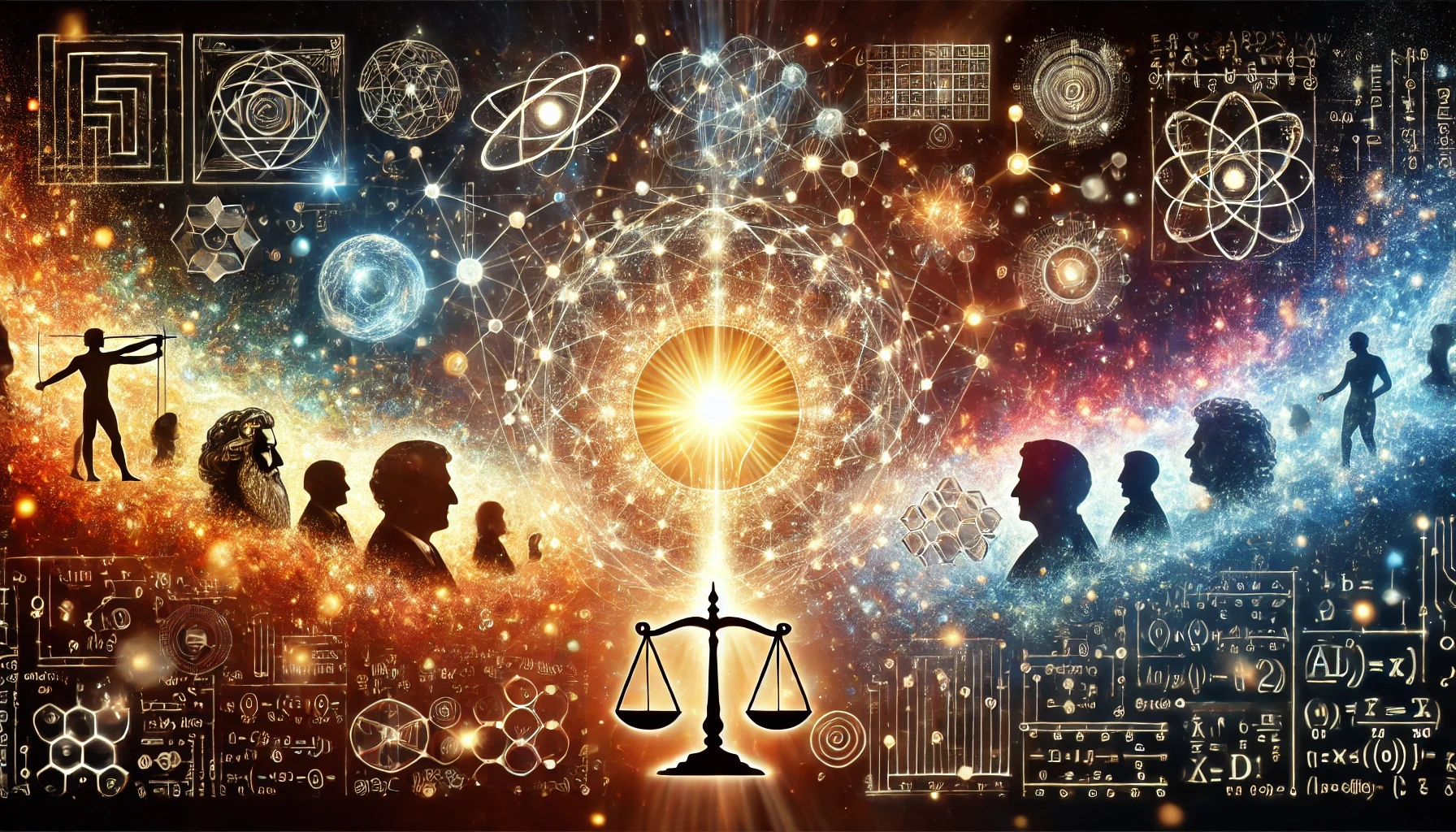Introduction: A New Paradigm for the Age of AI and Interconnectedness
In the great arc of human progress, certain ideas transcend time, shaping the way we perceive the world, law, and technology. The term Wardesque is not just a label—it is a way of thinking, a philosophy that seeks to define the ethical and intellectual framework of the AI age.
Like Orwellian thoughts on surveillance, Kafkaesque reflections on bureaucracy, and Darwinian principles of evolution, Wardesque thinking is emerging as a distinctive approach to law, artificial intelligence, ethics, and interconnected thought. It is about seeing beyond the present moment—understanding the deep patterns that govern human knowledge, technology, and governance, and shaping them with clarity, foresight, and responsibility.
What Does It Mean to Think Wardesque?
To think Wardesque is to embrace:
1. First-Principle Thinking in Law and AI
• The ability to strip down complex problems to their fundamental truths, reconstructing solutions from the ground up.
• Asking not what the law is, but what it should be in an AI-driven society.
• Designing legal frameworks for the future, not just reacting to outdated doctrines.
2. Interconnectedness Across Disciplines
• Seeing the links between law, technology, ethics, and governance—and harnessing them to drive progress.
• Understanding that every system is a node in a larger web, whether it be AI networks, global legal principles, or human cognition itself.
• Breaking down traditional silos of thought to foster truly global innovation.
3. Ethical AI and Governance for the Future
• Building an AI-driven world that is not only powerful but also just.
• Ensuring that law and technology evolve together, rather than law lagging behind technological revolutions.
• Advocating for an AI governance model rooted in fairness, sustainability, and human values.
4. A Visionary Approach to Legal and Technological Change
• Seeing beyond temporary trends to anticipate the long-term consequences of AI, automation, and legal evolution.
• Asking not just what AI can do, but what it must do to serve humanity responsibly.
• Developing new legal and governance models that balance innovation with human dignity.
Why the Future Needs a Wardesque Framework
The world stands at the precipice of the most profound technological revolution since the dawn of the industrial age. AI is not just automating simple tasks; it is rewriting the fabric of law, governance, and society itself.
• Legal systems built for the 19th and 20th centuries are struggling to keep pace with the rise of artificial intelligence, digital governance, and algorithmic decision-making.
• Ethical questions about AI remain unresolved, from bias in machine learning to the role of automation in global justice.
• The balance between human rights, corporate interests, and technological progress is fragile—and could tip in dangerous directions if left unchecked.
A Wardesque approach offers a new way forward: a structured, ethical, and intellectually rigorous model for navigating the challenges of AI, law, and governance in the 21st century.
The First Steps Toward a Wardesque Legacy
Over the next decade, Wardesque thought will take root in global discussions about AI governance, legal philosophy, and human progress. This is not just about theory—it is about practical, actionable solutions that shape the world in real time.
Here’s what comes next:
1. Codifying the Wardesque Framework
• A structured set of principles that define the ethical, legal, and governance challenges of the AI age.
• A methodology for applying Wardesque thought to law, policy, and technological ethics.
2. The Wardesque Institute for AI and Law
• A think tank and research foundation dedicated to applying Wardesque principles to real-world legal and technological challenges.
• A global hub where lawyers, AI researchers, and policymakers collaborate on designing the legal future of AI.
3. Embedding Wardesque Thought in Public Discourse
• Publishing thought leadership articles, books, and whitepapers that cement Wardesque principles in legal, tech, and governance circles.
• Collaborating with global institutions on AI law, policy, and governance.
• Influencing academic, policy, and media discussions about AI ethics and legal transformation.
Conclusion: Wardesque Thinking as a Guide for the Next Century
Wardesque thinking is not about resisting change—it is about shaping it with purpose. It is about understanding that the law is not static, that ethics must evolve with technology, and that the interconnected systems of the world demand new frameworks, new leadership, and new ideas.
This is just the beginning. The age of AI, quantum computing, and global governance requires a new class of thinkers, leaders, and visionaries—people who are willing to think Wardesque.
Are you ready?
Join the Wardesque Movement
If this vision resonates with you, I invite you to be part of the conversation. Comment, share, or reach out to discuss how Wardesque principles can help shape the future of AI, law, and ethics.
This is not just a philosophy. It is a call to action.
Let’s build the future—together.



